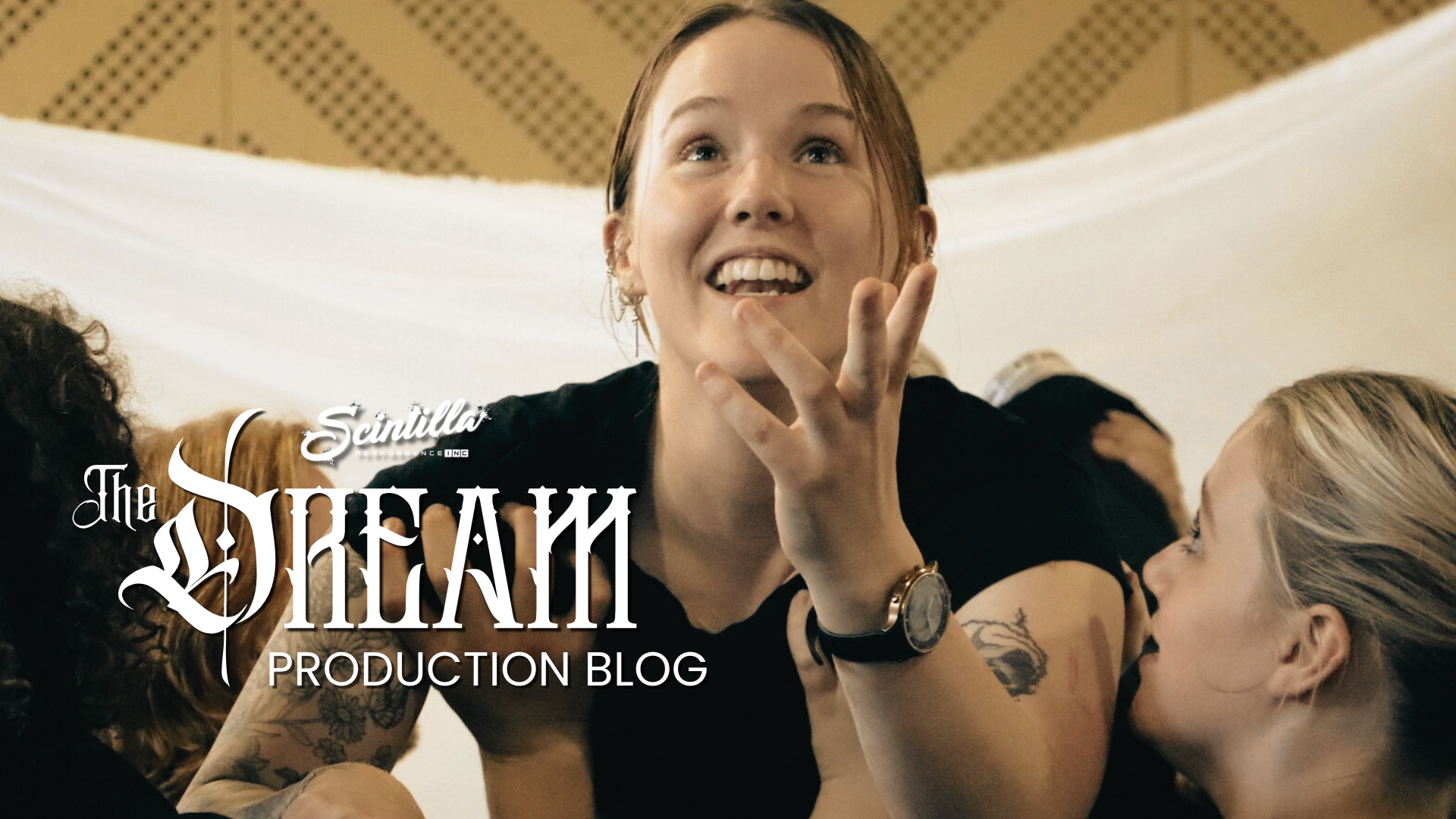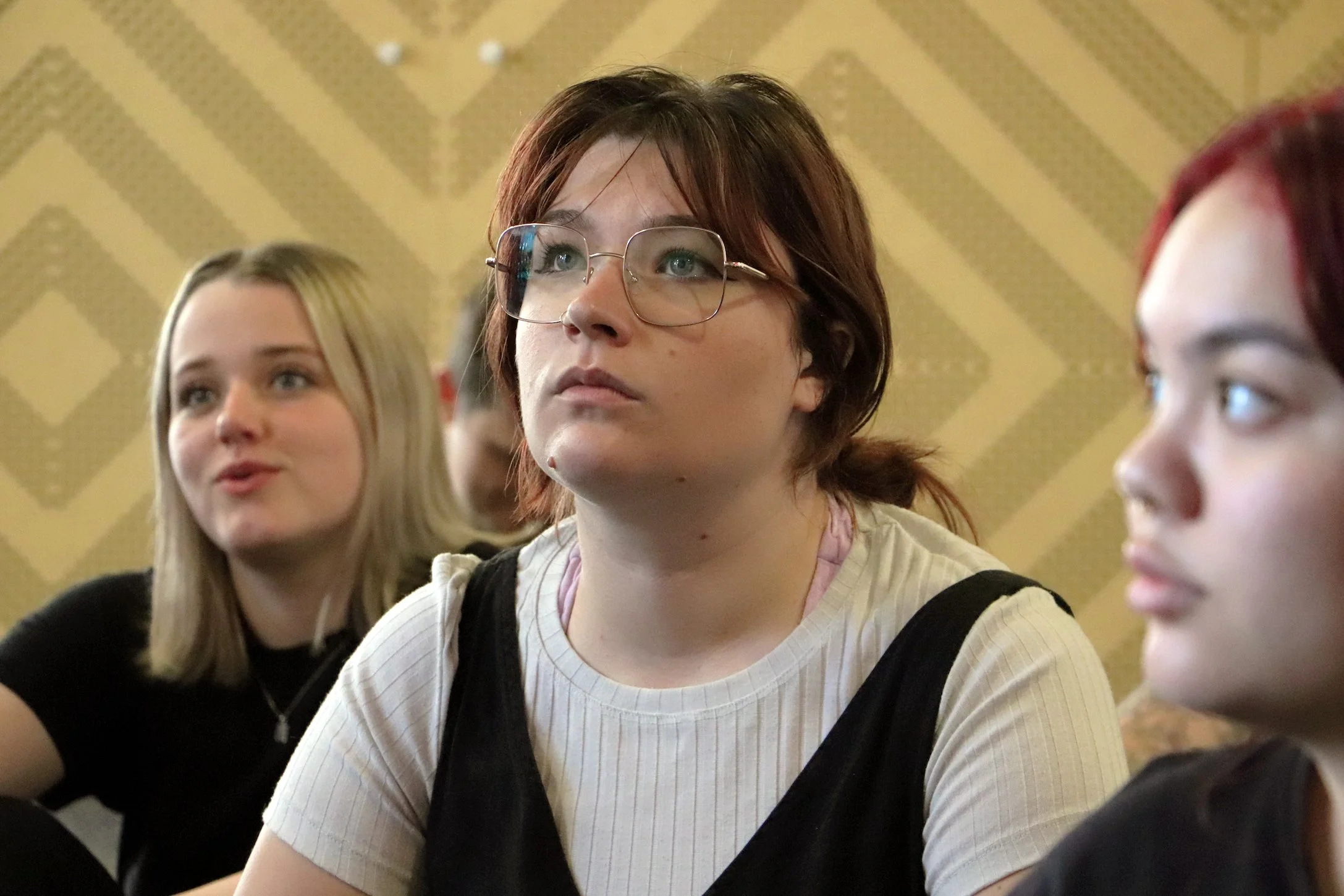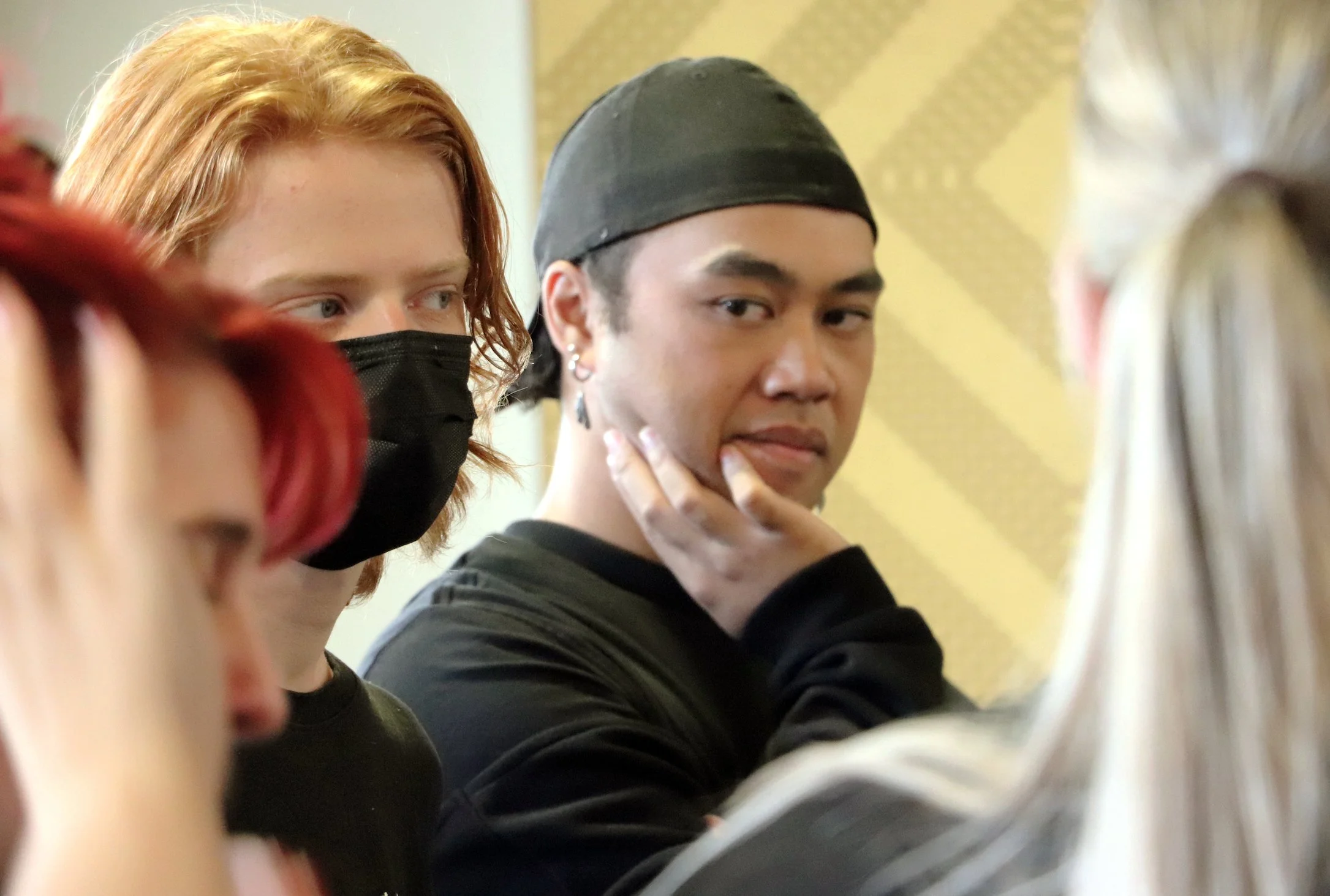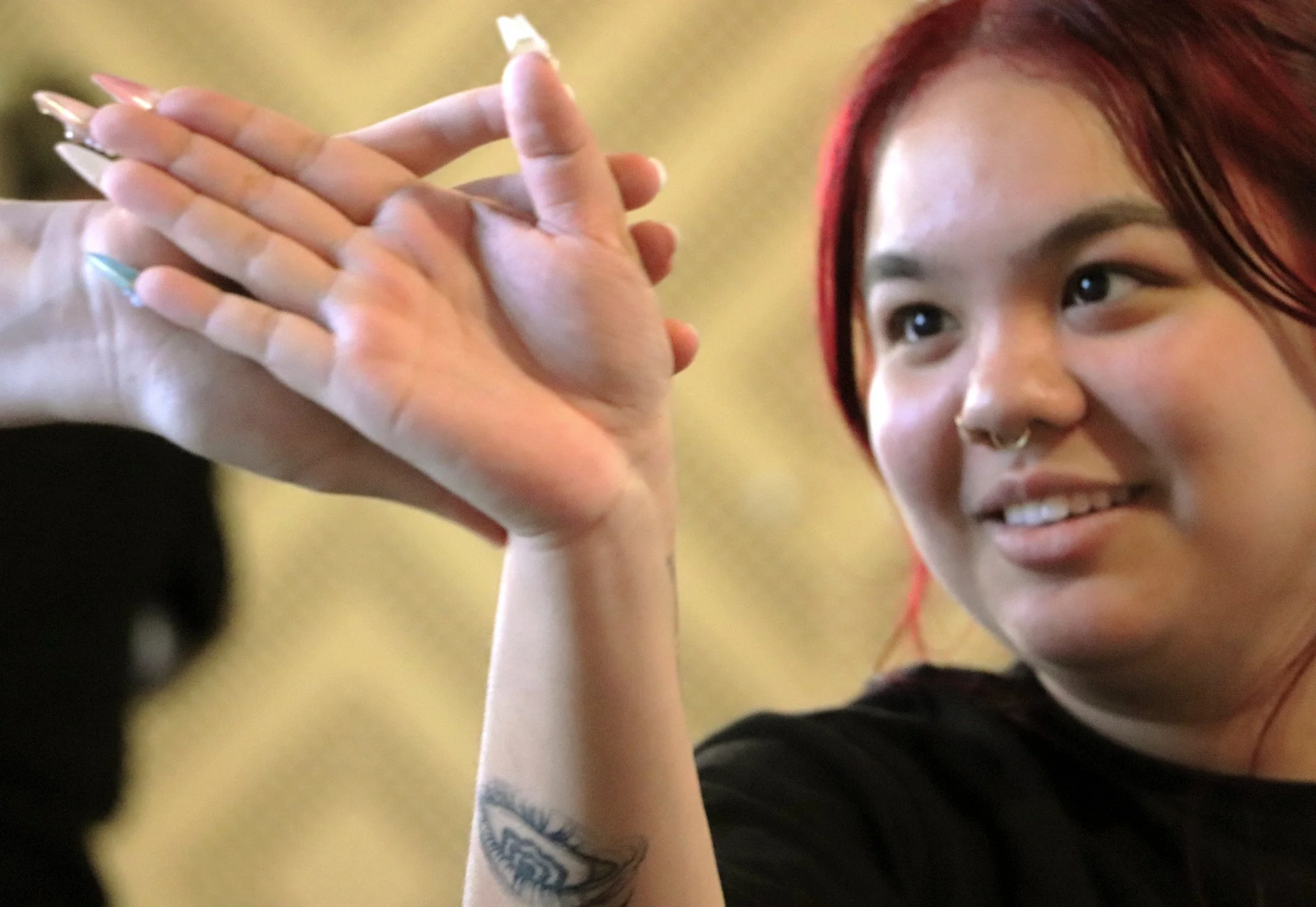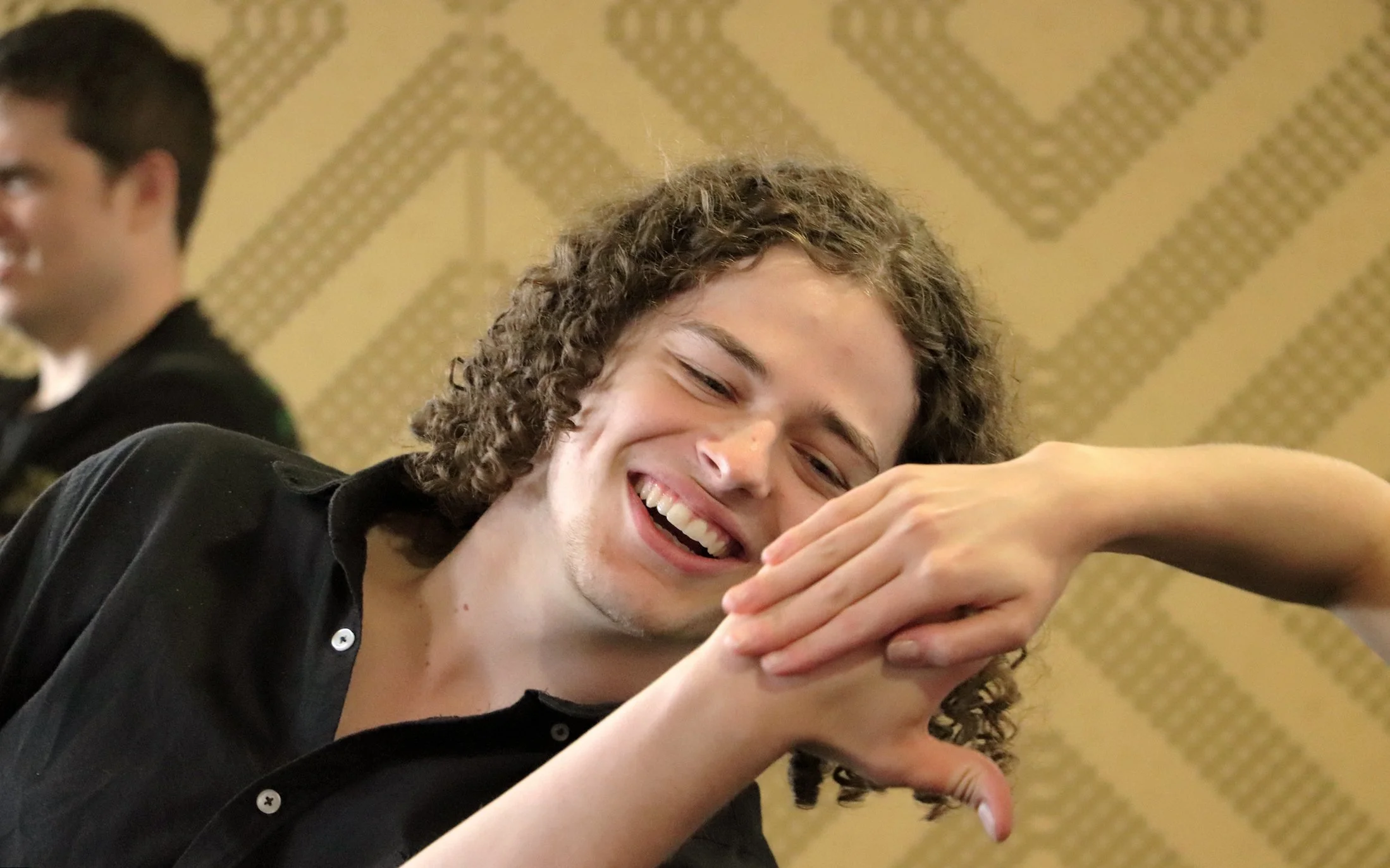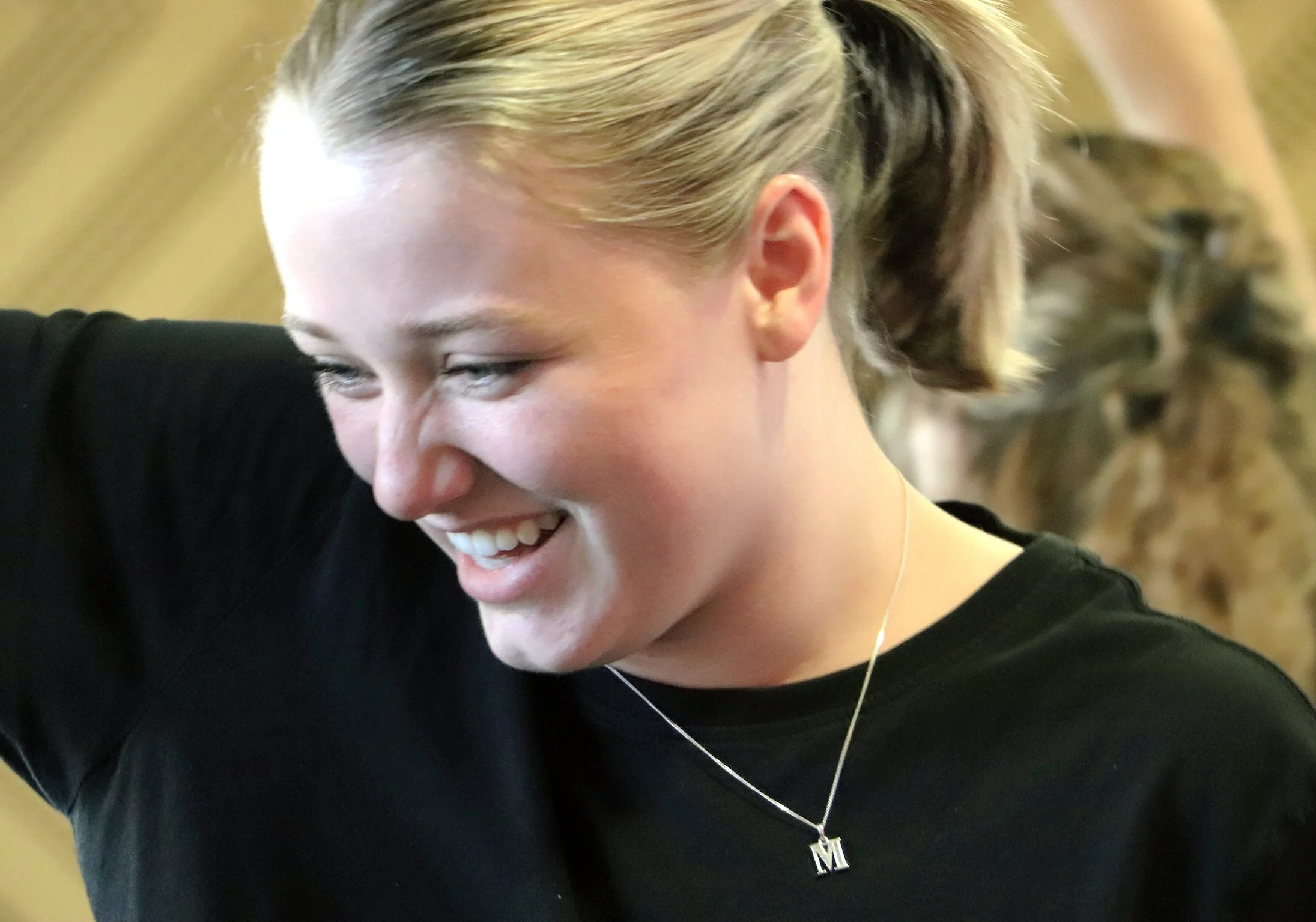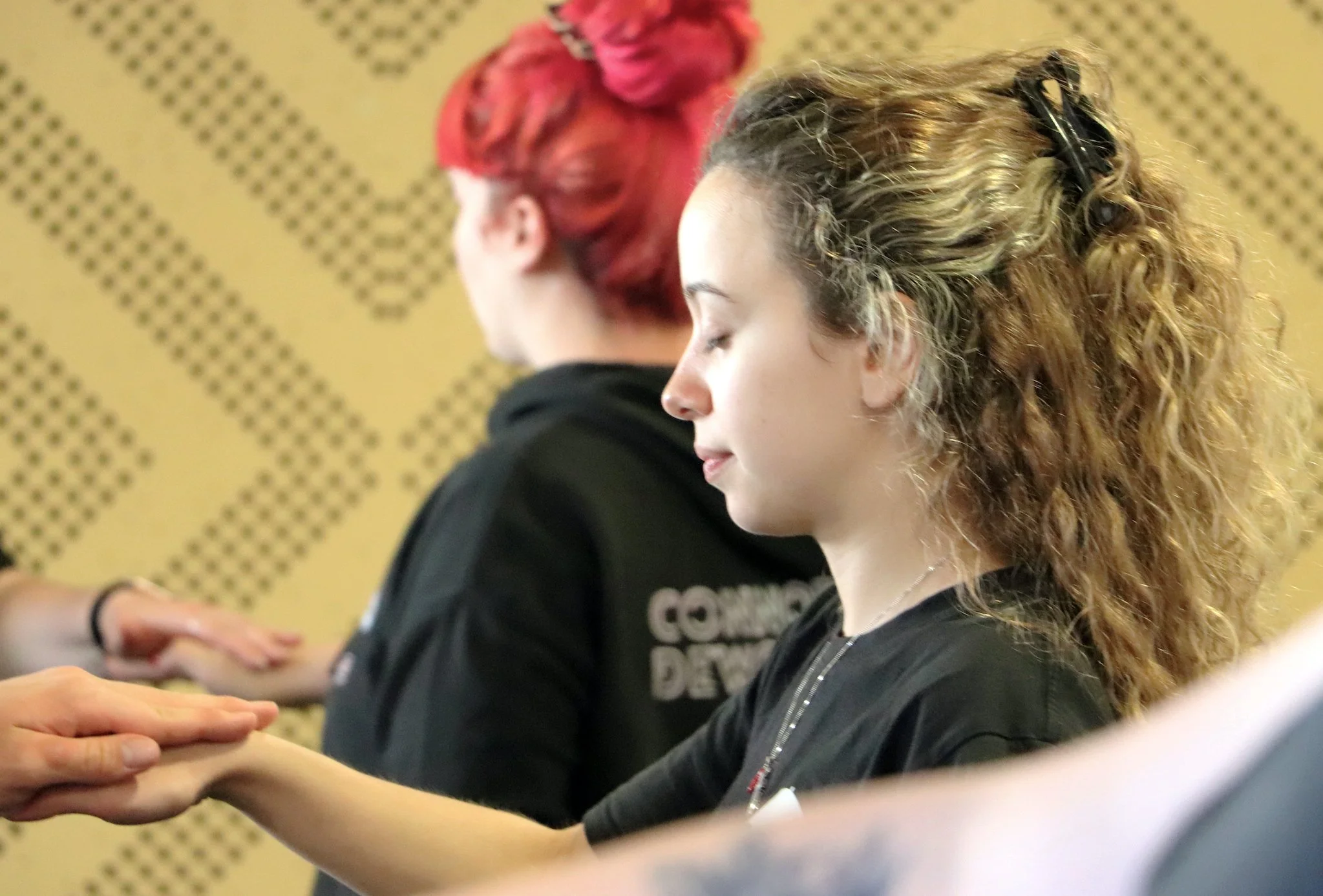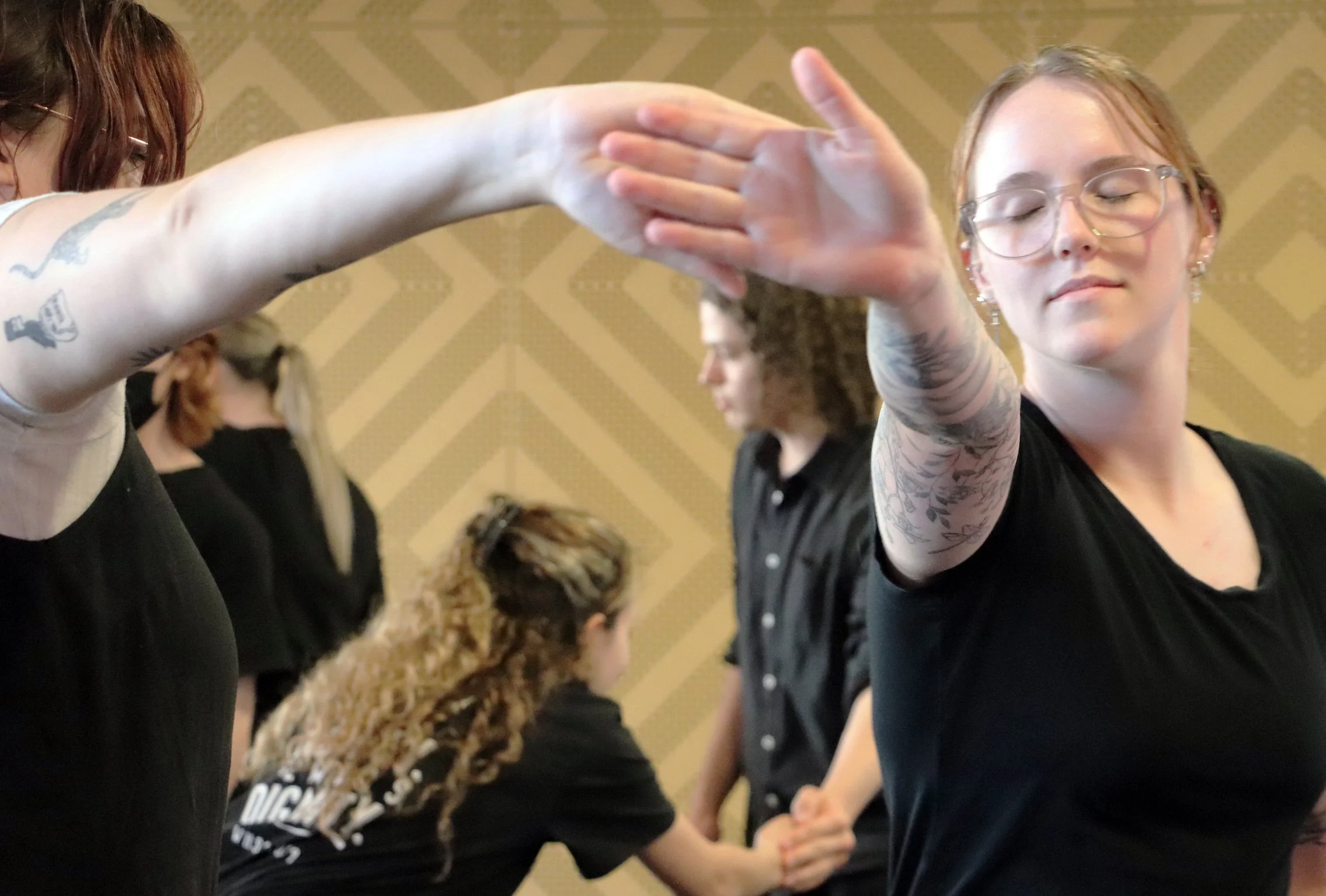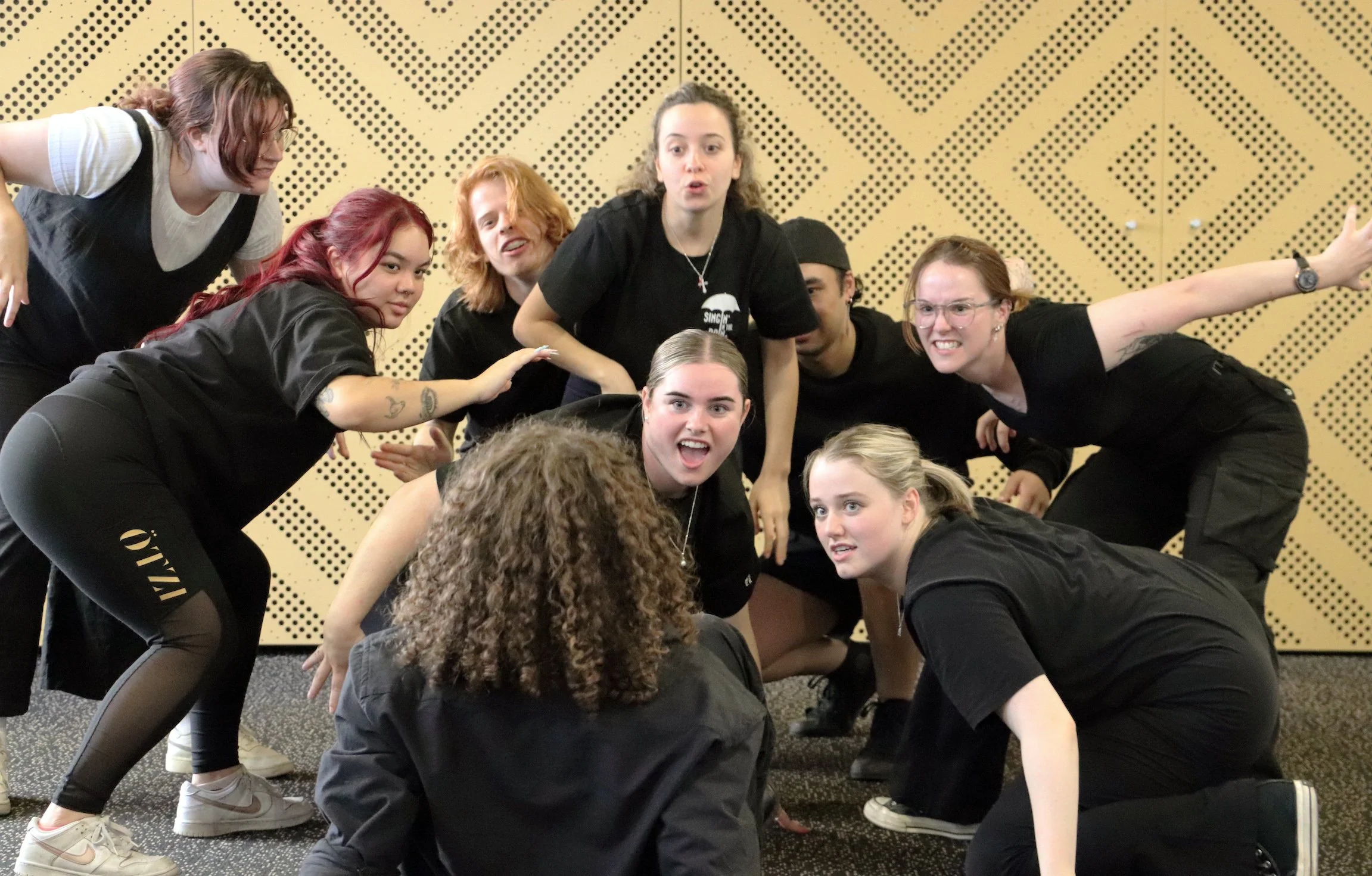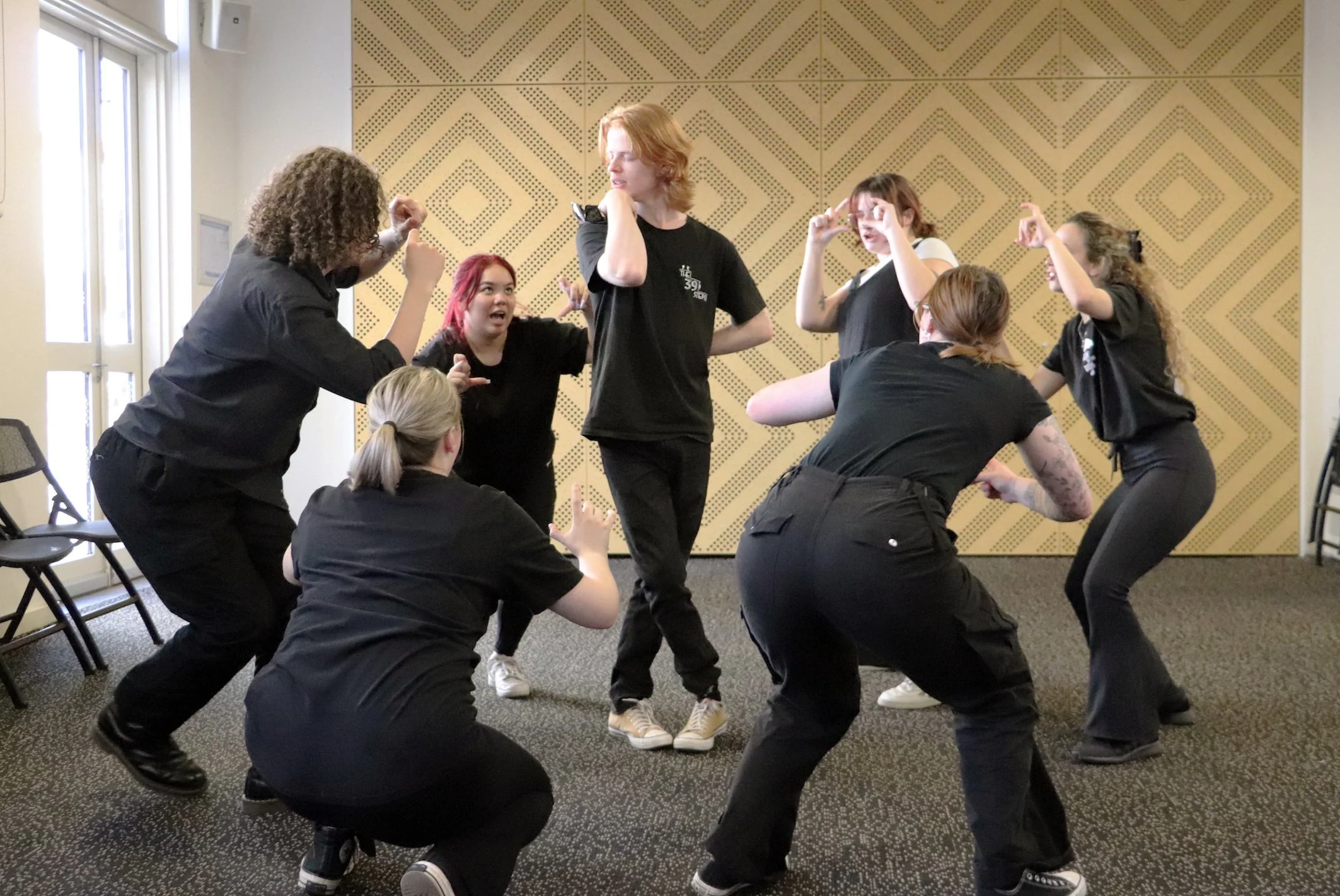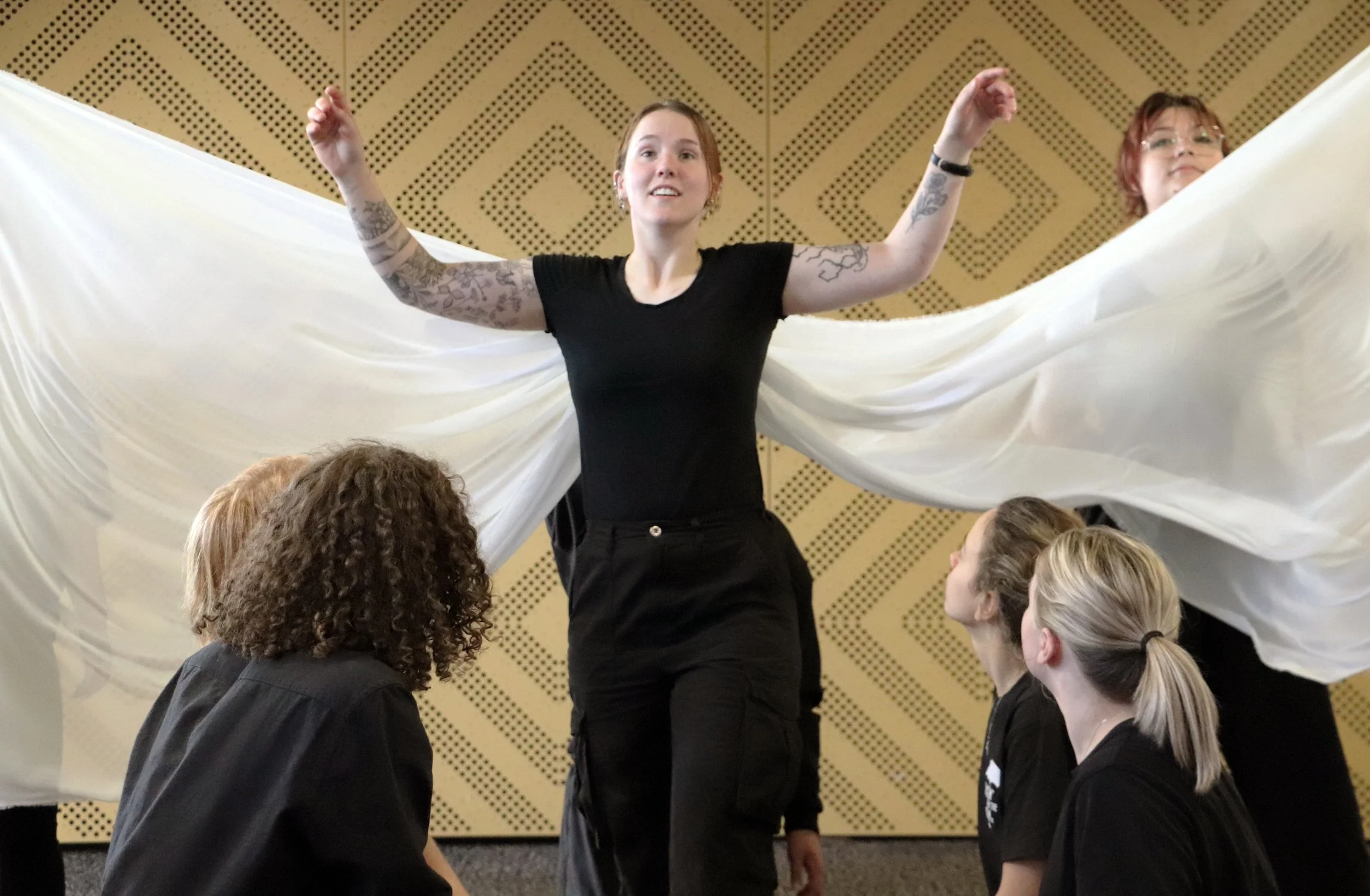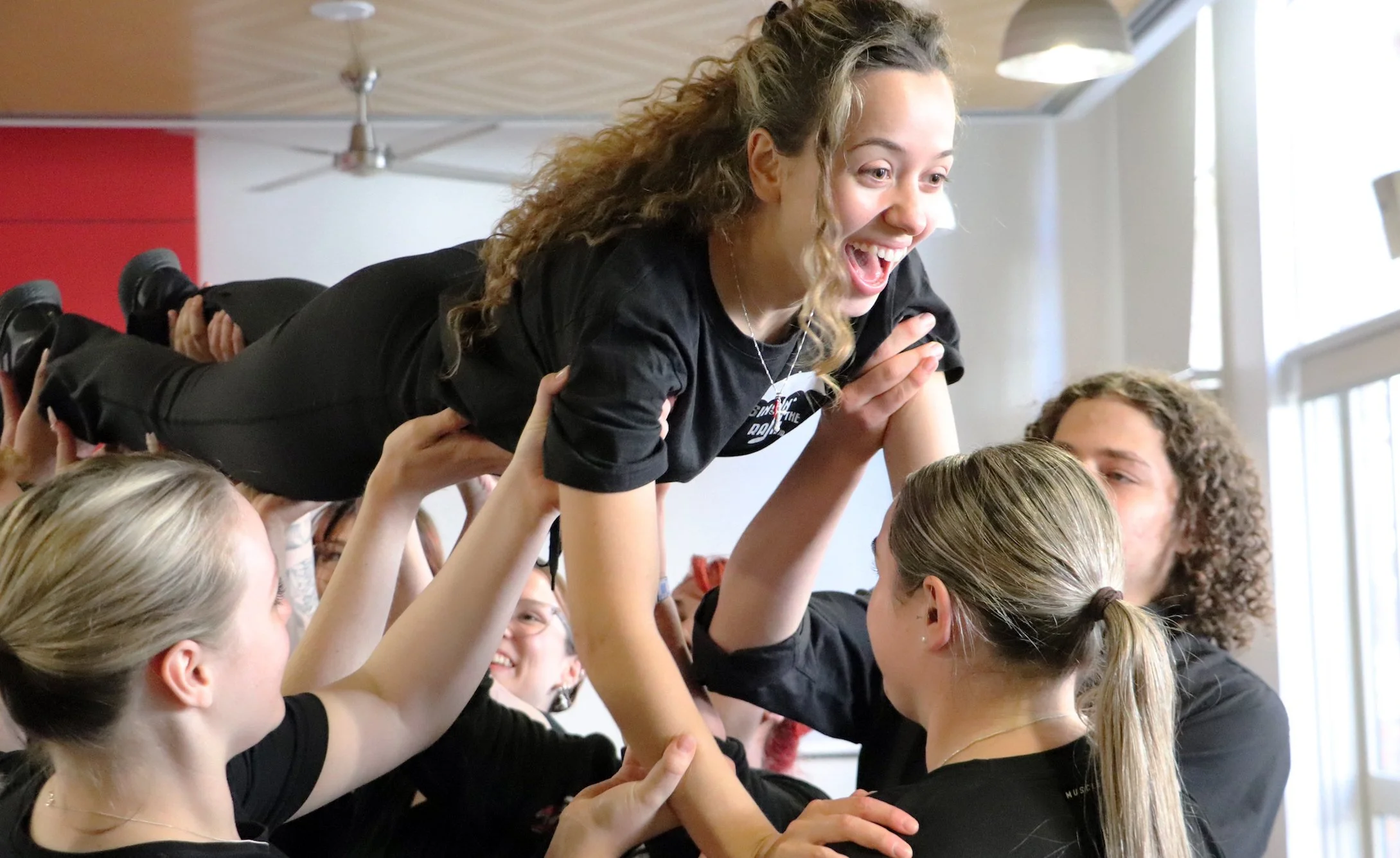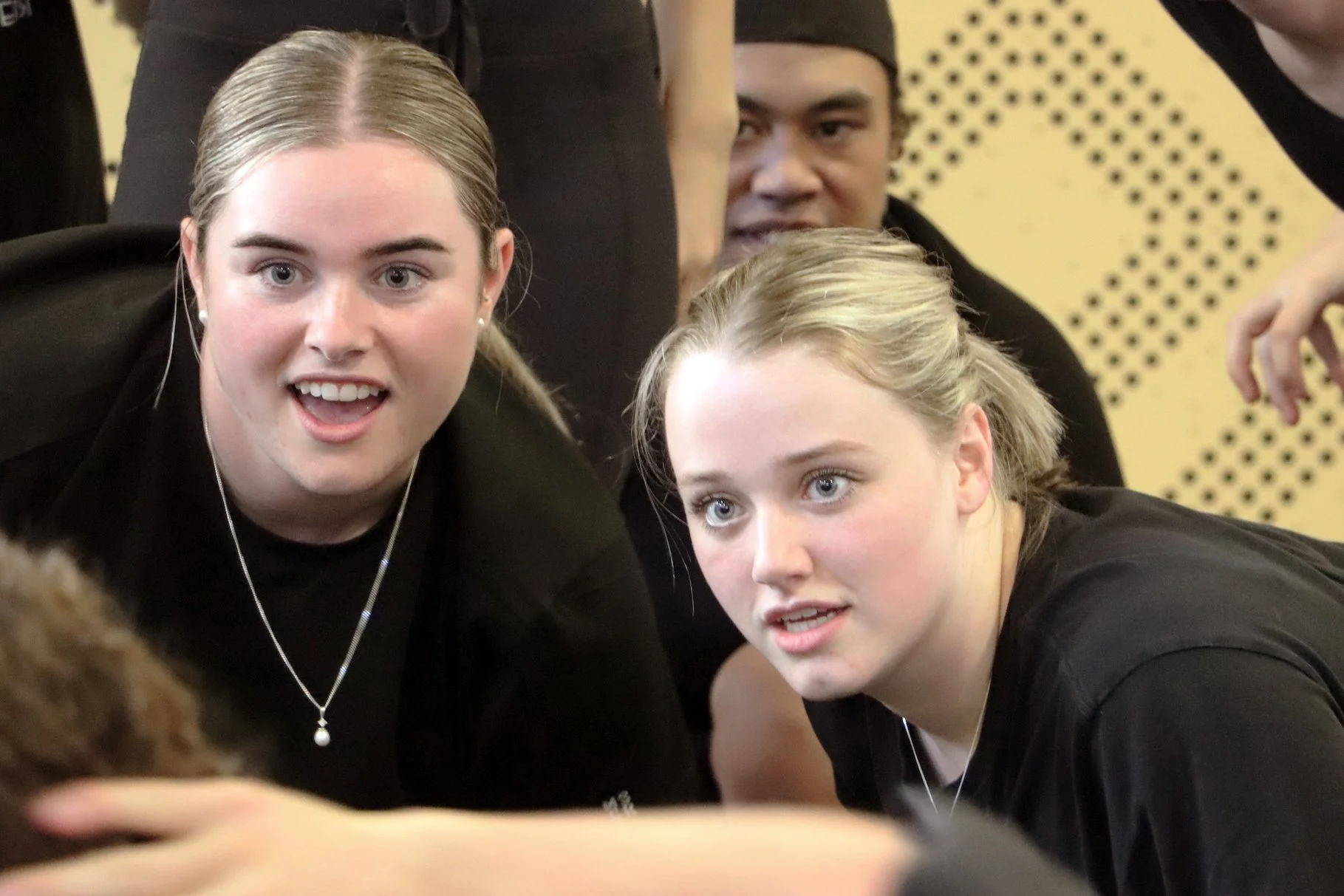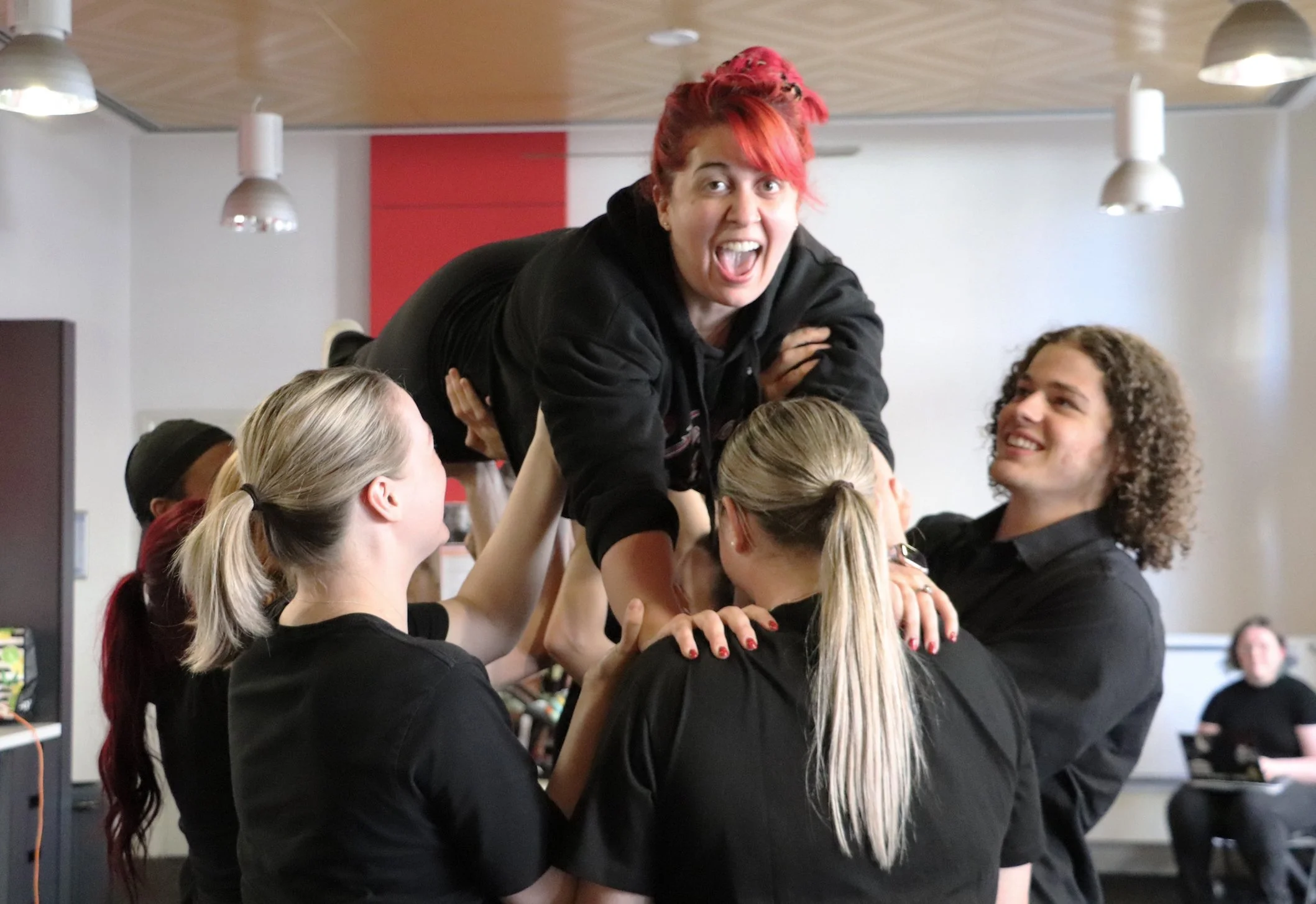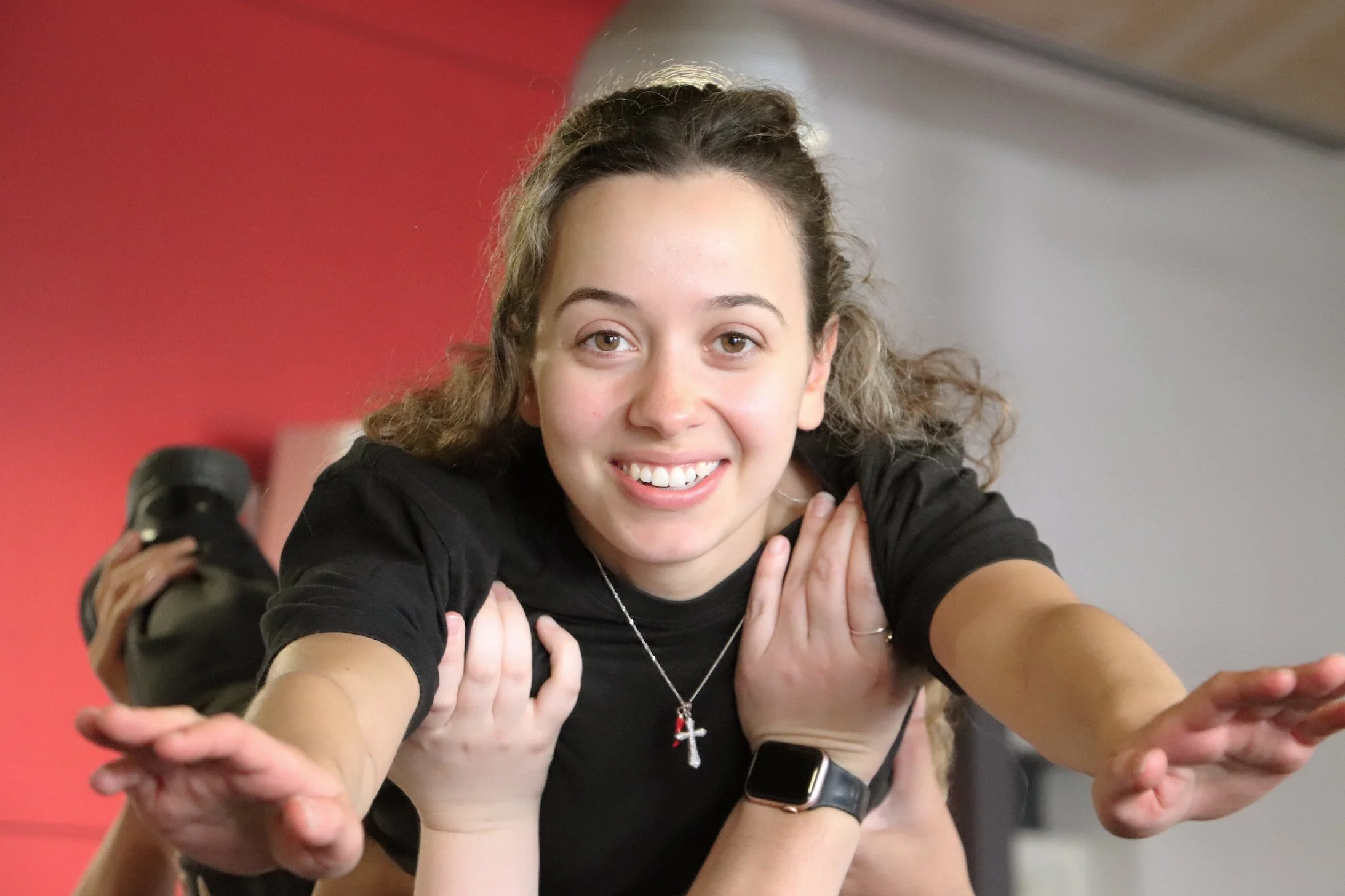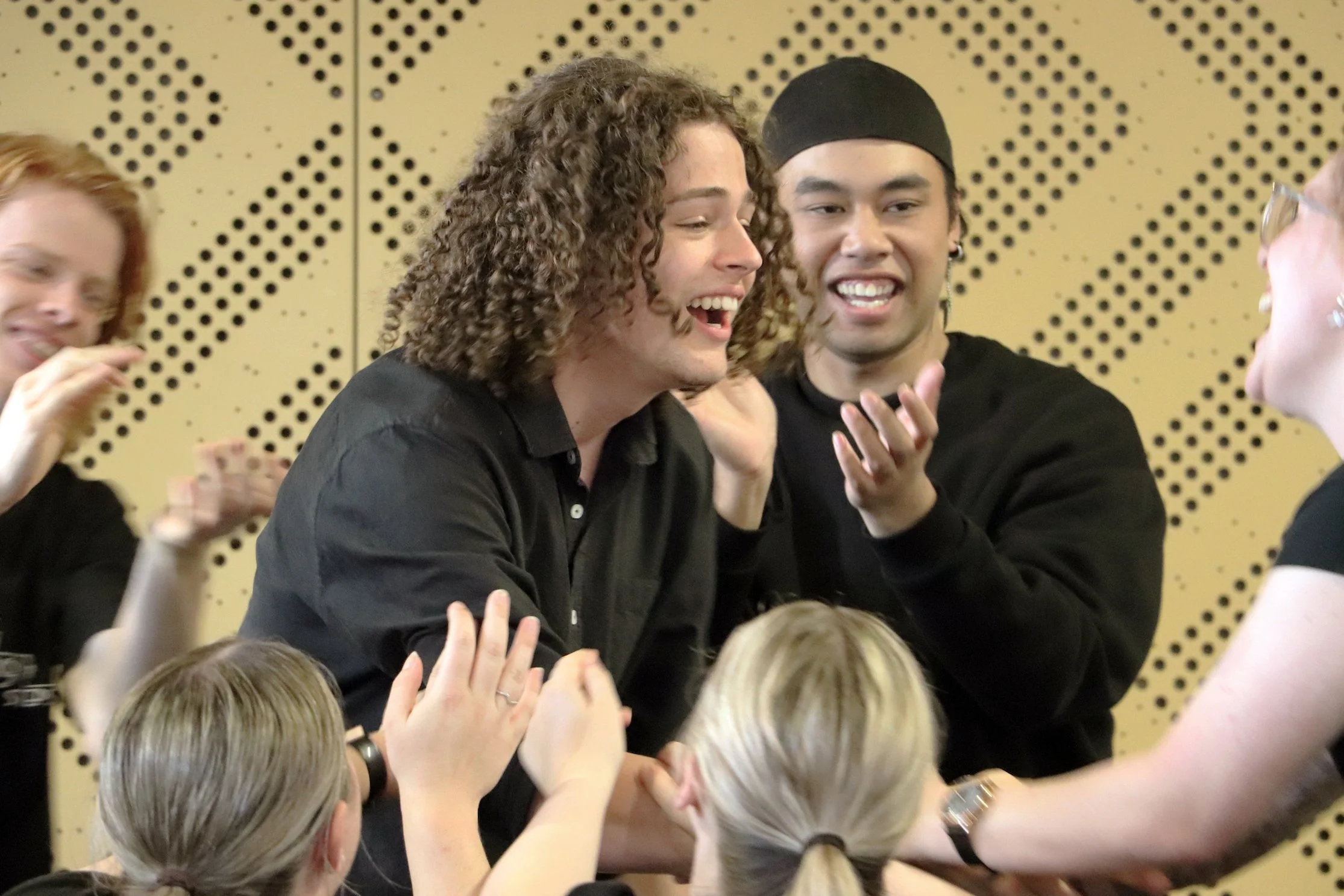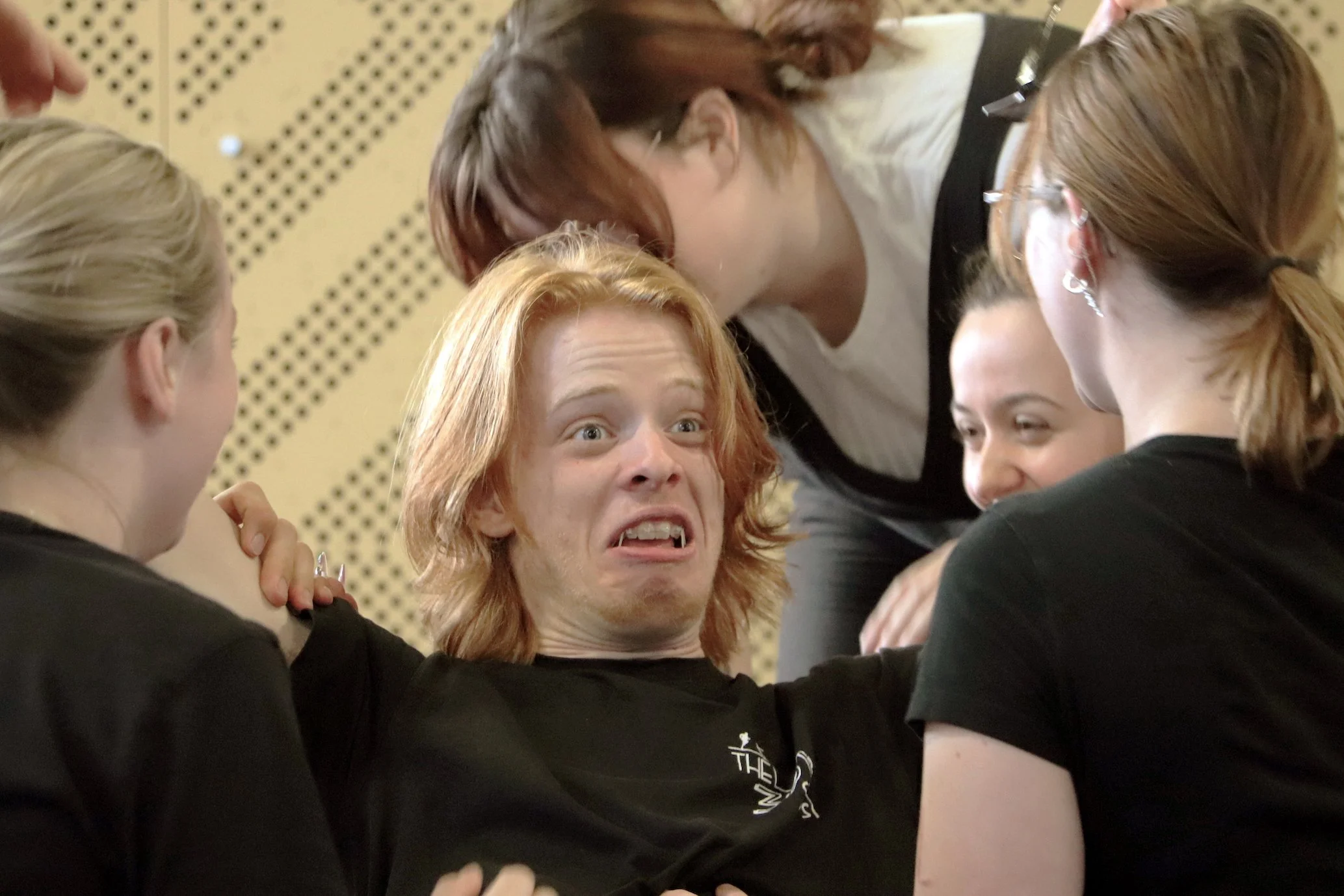Devising Workshop #3 - Tragic Heroes
This week’s workshop was all about one subject: Tragedy. A cornerstone of Western theatre, the importance of tragedy - in particular, Greek tragedy - cannot be understated. Tragedy was one of the three “modes”, or genres, of performance, and dealt with the biggest philosophical themes of its era (around the 5th Century BCE): Fate, death, loss, mortality, man’s relationship to the Gods, his place in the universe, and the inescapable force of destiny.
Although it would look very different to what we recognise now as “theatre” (if you don’t believe us, jump in your TARDIS and have a look), Greek theatre established much of the “language” of performative storytelling we still employ today. Things like narration, chorus, mask, a performance space imbued with particular meanings and symbolism, the roles and depictions of characters, and the structure of narrative - these all survive, with surprising similarity, on the stage today. A key text on the theory of drama - Aristotle’s Poetics - is even still taught in high school and university theatre classrooms around the world! Such is the ubiquity and impact of Greek theatre on the Western canon.
We think the enduring appeal of a tragedy - not merely a drama, or even a melodrama, but a full-blown tragedy - is in watching theatre operate at its most universal, spectacular, and demonstrative. Tragedy is big themes - not just who am I, but what am I, and more importantly, Oh Gods, what have I done? Tragedy is extremes - not only misfortune, but suffering, on a predestined, cosmic scale. It is everything going wrong, and then everyone dying, and then the city collapsing into the sea. Tragedy is in the gory revelation of The Bacchae, as a bewitched mother holds the head of her own son in her hands; tragedy is in the spiteful fury of Medea, as she stands astride her children - dead by her own hand - in a chariot pulled by dragons; tragedy is the climactic banquet bloodbath of Tis Pity She’s a Whore, where no one escapes alive despite their best intentions; and it’s in the irony of Juliet waking a moment too late to stay the hand of her beloved Romeo.
Nicholas J. Bottom, former weaver, one-time actor, discovers the joys of fame aren’t worth the price…
But of what possible value is something like tragedy, being composed, as it so often is, of such horrible things? Why subject ourselves to such bleak, unrelenting misery? Well, its value is in two things: The instructive nature of how the tragedy came about, and in catharsis.
For hundreds of years, theatre, as an artform, was not solely an entertainment - it was education, on a mass scale. Plays were (and continue to be) ways for a society to present ideas, concepts, and scenarios to a large number of people, and to pass a moral judgement on them. Like a public service announcement before the advent of the radio, tragedy in theatre was a way for societies to reinforce values, laws, and standards of morality (and to demonstrate those who transgress and their grimmer-than-grim punishments) en masse, couched in the guise of entertainment.
Narcissus: We’ll follow you until you love us… Papa-paparazzi.
The heroes of Greek tragedy always bring about their own destruction - through hubris, vanity, arrogance, or dismissal of the Gods - and in doing so, provide a valuable lesson to those watching from the safety of the cheap seats: Do not do as Oedipus does, friend, lest thine own mother thou sleep with, and thine eyes be put out as thy penance, capiche?
Tragedy was also a way for audiences to examine, process, and (most importantly) release feelings associated with social and cultural taboos - death, murder, revenge - through depiction, rather than first-hand experience. The word we still use for this effect is catharsis - literally Greek for “cleansing” or “purification”. By depicting extremity, rather than experiencing it, we confront the feelings that accompany such horrible acts, and experience a catharsis; we are “purged” of them, “releasing” them in a harmless and healthy way.
Icarus discovers the joy of flight, the freedom of the sky… and the endless weightlessness of falling.
Of course, this is a very modern understanding of the catharsis phenomena - particularly how it relates to grief or trauma - but its concept, in essence, was not just understood, but actively practised, by tragedians over 2,500 years ago. It’s humbling to think that for all the time between us and the ancient Greeks - between the Festival of Dionysus and TikTok - human beings, as emotionally complex creatures cognizant of their emotional complexity, remain unchanged at our core!
An exercise in truse, collaboration, and communication proves to be an elevating experience for Jemma.
So, armed with a firm grasp on the importance and conventions of tragedy, this week’s workshop was about exploring the stories of the tragic “heroes” who appear in THE DREAM, their entanglement with various Gods of Olympus, and the monstrous fates that await them in the enchanted Forest of Dreams… It was also about taking our physical theatre skills to the next level - literally! - as we practised lifts and other physical feats that relied on teamwork, cohesion, trust, and communication.
Sometimes it’s better to be an anonymous face in the crowd than to draw the attention of the Bacchae…
Reflection from Genelle | Scintilla Facilitator
Genele gets her wings (in the tooth-fairy sense; not the other kind.)
I was really excited to start playing with physical theatre this week, especially because we were linking them with some of the “tragic heroes” we are including in The Dream. I have used it a couple of times in previous productions, and when it’s done properly, it can look truly spectacular. Storytelling through movement can be so engaging for an audience - so, why not try and push the boundaries of physical movement as much as we can!
I truly threw participants (and myself) into the deep end (or into the air?) as we practised different lifts. When talking about the technique, a couple of things come up - the lifts only work if there is trust and commitment from the team. You don’t step away unless you truly know you can. You must give each movement 100%, or failure could result in ACTUAL HARM. And I think that’s what I was most impressed with this group. They gave it everything. They were clearly communicating. They were building each other up and LITERALLY CARRYING EACH OTHER.
On a personal note, I decided to volunteer first as the “flyer” because… well… I figured if I got hurt it would be okay? (Talk about martyr complex…) And then I IMMEDIATELY remembered my fear of heights… so I took a moment. I had to remember that I’m putting my body on the line and I have to believe that these participants will ensure I am safe. And it WORKED and it was THRILLING. And with each person we lifted, it was that same elation. WE DID IT!
So the possibilities only grew. We now have a rich history for each of these characters, and a new vocabulary in which to express their story. Keen to see where this goes.
Reflection from Tom | Scintilla Theatre Technician
Every week, Tom (in strict collaboration with Archie), composes a haiku on his thoughts, feelings, and observations from that week’s workshop. They are GENIUS. Please enjoy his latest:
Reflection from Jemma | Workshop Participant
Jemma, mid-flight.
I loved learning more about lifting and ‘flying’. I felt a greater bond with the devising team because they were literally holding me metres above the ground and it fast tracked the trust which is super useful in creating a collaborative environment.
I was obsessed with the character response text sheets provided to us and the different texts that could inform the character- specifically Narcissus and ‘Bad Romance’ by Lady Gaga, it opened up a whole new realm of performative possibilities.
Reflection from Angus | Workshop Participant
Angus, a true Athenian celebrity, basks in the limelight.
The third workshop tied in perfectly for me with the overall direction Genelle and Jack are going for with storytelling through physical action.
I’m feeling very lucky to have joined THE DREAM, as it’s prompting me to expand my idea of what a theatrical performance can look like.
The main takeaway for me was the importance of trust and listening to your peers through the communication of body language.
All in all, I’d like to say I approve 🤙
Lockie, a.k.a. Narcissus, continues his trend of fabulous faces as he’s drawn down into a grisly demise by his insatiable fans.
Key observations, reflections, take-aways:
Communication is more important than physical strength when it comes to trust. You don’t need guns like Arnie to fly someone if you’re communicating clearly and effectively.
It doesn’t take much to build a moment. A strong stage image, a purposeful gesture, and a line or two of repeated text can take on temendous significance… if presented purposefully and with conviction!
Symbols are powerful! Just like the Greeks would have used props, masks, gestures and costumes with strong symbolic meaning to their society, we can use modern-day iconography to give our stories and staging added resonance and meaning.
We’re entering the home stretch… just two more workshops to go!
Until next time… See you in THE DREAM!
G & J and THE DREAM Devising Team

